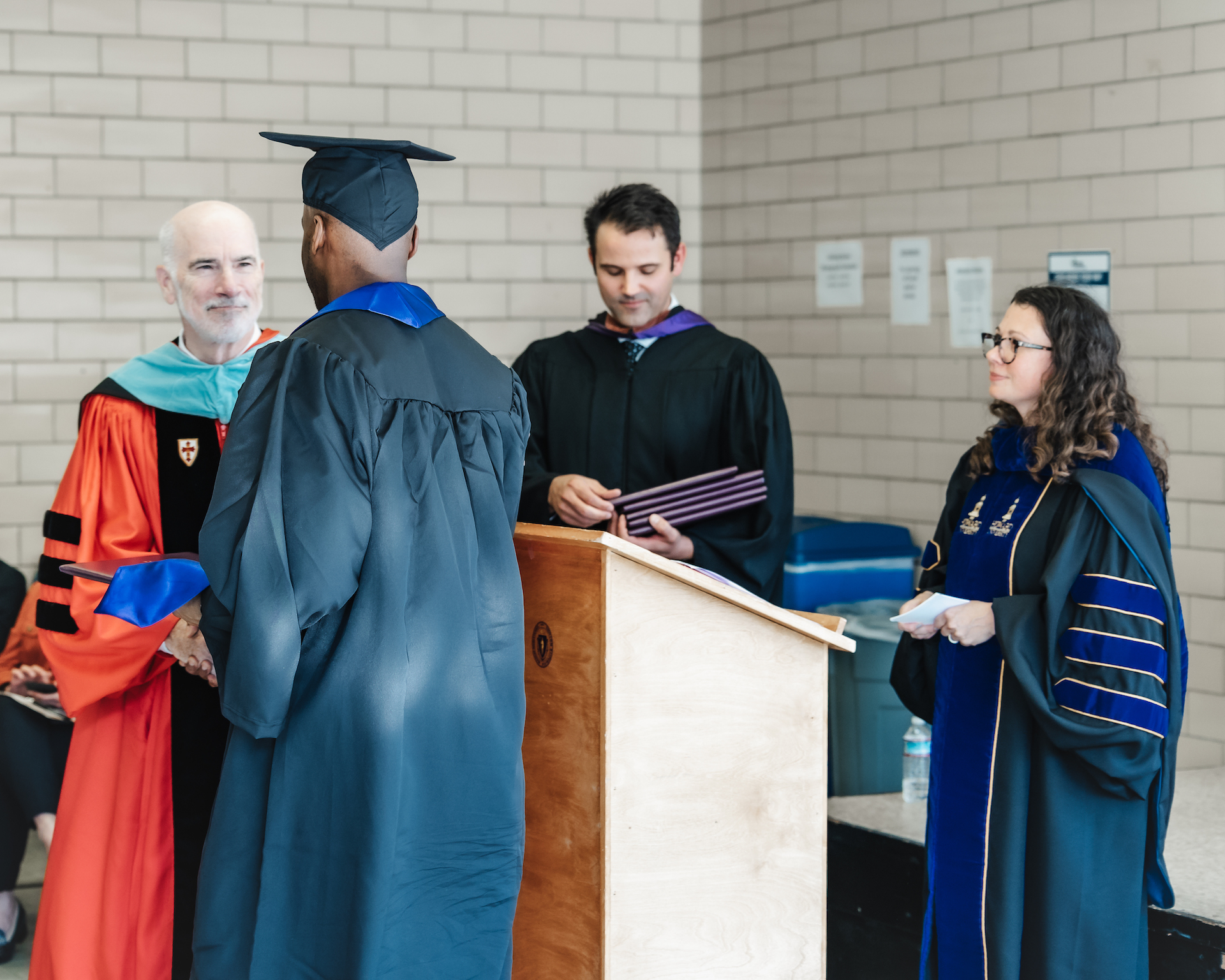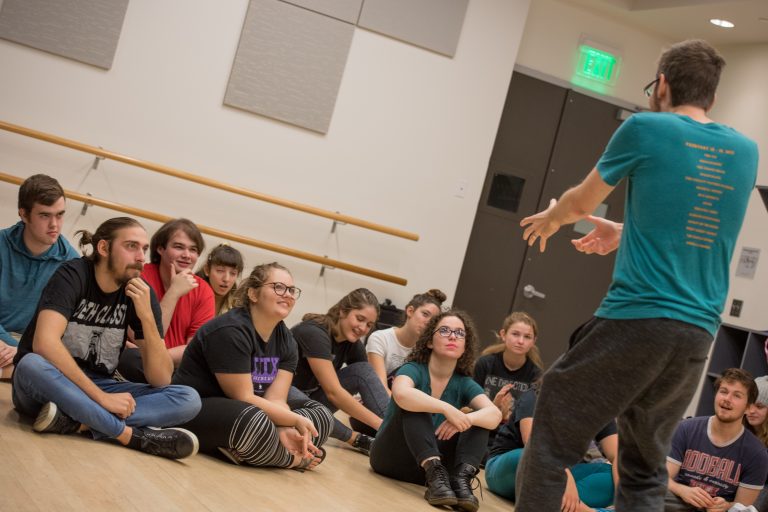EPI Celebrates Five Years of Transformative Education
In 2017, Emerson launched the Emerson Prison Initiative (EPI), led by associate professor Mneesha Gellman. EPI offers a pathway to a college education for admitted students who are incarcerated at Massachusetts Correctional Institution at Concord (MCI-Concord), a medium-security men’s prison about 20 miles west of Boston. Students are taught by Emerson faculty and are held to the same academic standards as their counterparts on the College’s campus in Boston—despite not having access to the same resources: internet, equipment, libraries.
From day one, students have been able to earn college credit for the courses, but a little over a year after
launching, Gellman, with the support of the College administration and then-President Lee Pelton, was able
to expand EPI into a degree-granting course of study.
On September 27, five years after the program’s launch, 10 EPI students officially became graduates of Emerson College with bachelor’s degrees in Media, Literature, and Culture, a major designed for EPI within the Marlboro Institute for Liberal Arts and Interdisciplinary Studies. Six of the students participated in a ceremony at MCI-Concord attended by family, friends, and faculty.
In September, Brandeis University Press released Education Behind the Wall: Why and How We Teach College in Prison, a book edited by Associate Professor and EPI Director Mneesha Gellman that lays out the benefits, challenges, and opportunities of prison education. It includes essays written by educators who have taught in college-in-prison programs, including many EPI faculty.
“[EPI] just literally created a lifeline for so many people inside of prison who knew they wanted more for them selves, but maybe just didn’t have the platform to get more for themselves,” said Ahmad Bright ’25, who took EPI courses when he was incarcerated and is now enrolled at Emerson. “It’s just been an incredible experience.”
EPI admitted its second cohort in Summer 2021 and introduced a new minor in Economics, in part a
response to the interests of the students themselves, said Interim EPI Director and Associate Professor Cara Moyer-Duncan, who is leading the initiative while Gellman is on research leave. Moyer-Duncan said in the past
six years, she has seen shifts in the way college in prison is understood in society, including at the federal
level with the introduction of Second Chance Pell Grants for incarcerated students.
“For EPI, it’s been important to promote an understanding of the transformative possibilities of access
to education in prison, and why this is something worthy and important for communities to embrace,” she said.







